Graduate researcher profiles
Meet graduate researchers who are currently studying and find out about their experiences.

Xanthe Lowe-Brown
School of Computing and Information Systems, Human-Computer Interaction Group Bio: I am a PhD candidate in Human-Computer Interaction at the University of Melbourne, holding a PhD scholarship from the Centre for AI and Digital Ethics (CAIDE). I completed a Bachelor of Music Performance (Contemporary Guitar) at the Melbourne Conservatorium of Music in 2021 and my Honour's thesis on the individual differences in the experience of Musically-Evoked Chills in 2022. Research: Working with an exceptional interdisciplinary supervision team - Dr Greg Wadley (Human-Computer Interaction), Dr Solange Glasser (Music Psychology) and A/Prof Peter Koval (Psychology), my PhD aims to design and evaluate an ethical, human-centred emotion-based Music Recommender System that facilitates effective emotion regulation in daily life by generating mood and personality-based playlists. Ultimately, I seek to enable highly usable interventions for music streaming services that could safely support wellbeing for over half a billion music streamers around the globe.

Renate Roeterink - Joint PhD
Department of Biomedical Engineering, and the Florey Institute. I started my joint Ph.D. project with KU Leuven, Belgium in November 2022 at the Department of Biomedical Engineering, and the Florey Institute under the supervision of Dr. David Collins, A/Prof. Daniel Scott and Prof. Xevi Casadevall i Solvas. My main areas of interest include molecular biology, biofabrication, and microfluidics and the combination of these disciplines. Cells are continually exposed to mechanical stimulation and depend on mechanosensitive receptors, such as ion channels and G-coupled receptors to convert signals into adequate biological responses. There is very little clear understanding surrounding the quantitative relationship between cell-scale forces and mechanosensitive protein response, due to a lack of devices that simultaneously generate defined microscale forces and assess cellular responses. My research involves the development of novel approaches to quantify mechanosensitive membrane protein responses. By applying a single defined force in a controlled environment, we can study the characteristics of the responses of several mechanosensitive proteins, such as G-protein coupled receptor GPR68 and ion channel Piezo1.

Bingyi Han
School of Computing and Information Systems – Human-Computer Interaction Bingyi Han is a third-year Ph.D. candidate in Human-Computer Interaction. Her Ph.D. project explores the ethical challenges and sociotechnical implications of adopting AI in sensitive settings, especially in education. Her research interests also encompass the human-centered design and user experience evaluation of emerging technological innovations. Outside of academic life, Bingyi is a vocalist for a progressive rock band where she creates her own musical pieces.

Bin Yan - Joint PhD
Yan Bin, a joint PhD candidate at Shanghai Jiao Tong University and the University of Melbourne, received comprehensive academic training during his undergraduate studies at Shanghai Jiao Tong University. His research in Offshore Geotechnics focuses on optimizing shared anchor foundations for cost-effective and sustainable offshore structures. His research focuses on Offshore Geotechnics, specifically investigating the mechanical response of shared anchor foundations under multidirectional loading. A combination of numerical simulations and experimental methods is employed to assess the influence of various loading conditions on the load-bearing capacity of shared anchor foundations. The primary goal is to optimize foundation design, minimizing the required quantity of foundations and, thereby, realizing cost savings in construction.

Sapan Tiwari
Department of Infrastructure Engineering, Transport Group I have pursued my M. Tech in Transportation Systems Engineering from the Indian Institute of Technology, Guwahati, India, and B.Tech in Civil Engineering from the University College of Engineering, RTU, Kota, India. Before joining here, I worked as a Junior Research Fellow at the Architecture and Regional Planning Department of the Indian Institute of Technology, Kharagpur, India. My research focuses on leveraging operations control for integrating Transportation Network Companies (TNCs) with Public Transport (PT). I work on developing algorithms prioritizing low PT-access areas and aim to complement PT by improving accessibility and system efficiency. The research focuses on developing various prioritization and operation strategies, including ride-matching and rebalancing strategies for TNCs to improve their PT integration and move towards a sustainable transport network.

Yige Song
Computing and Information Systems Yige is a PhD student in Computing and Information Systems at the University of Melbourne. His research interests lie in data science and its applications in learning analytics. Ultimately, he wants to utilise the large amount of data collected in the LMS to enhance students’ learning experience. Yige is also a part-time tutor, and this tutoring experience inspires and motivates his research. Besides, Yige also has interests in psychology and economics, and he loves travelling and food!

Luka Lindic
Dedicated PhD student in Mechanical Engineering specializing in Experimental Fluid Dynamics within a high Reynolds number wind tunnel, conducting research on Adverse Pressure Gradient Turbulent Boundary Layer Flow. Passion for applying findings in automotive, aviation, and renewable energy sectors. High Reynolds number (Re) turbulent boundary layer flows subjected to adverse pressure gradients (APG) are evident in several engineering applications such as ship hulls, and aircraft wings. Therefore, an improved understanding of an APG TBL can consequently help to predict the flow separation and increase the energy efficiency by reducing drag. The aim is to establish a high Re canonical APG TBL that emerges from a fully developed ZPG TBL at Reτ ≳ 10,000 in the large Melbourne wind tunnel.

Tay Son Le
Son is a PhD candidate at UoM with a research focus on hydrogen/battery energy storage systems integrated with solar PV. He is also actively involved in the renewable energy sector as an engineer at a commercial renewable energy EPC. Moreover, he enjoys teaching and has been tutoring engineering subjects at UoM since 2019. My research focuses on conducting feasibility assessments of battery and hydrogen energy storage systems, integrated with solar PV for grid-connected applications. I have conducted comprehensive evaluations and assessments regarding their economic, environmental impact, and safety considerations. Specifically, I optimised capacity and operational strategies and conducted techno-economic analyses of the system. I also analysed the safety of the system with quantitative risk assessments and performed a life cycle assessment of various energy storage systems to analyse their environmental impacts.

Matthew Sidji - Ingenium Scholar
Computing and Information Systems. Matthew is interested in gaming, AI and philosophy of mind. He completed a bachelor of Science with a Major in Mathematics and Minors in Physics and Philosophy. In his free time he enjoys boardgames, rock climbing, and cooking. This work aims to investigate the ways in which humans cooperate and communicate affectively in gaming environments and how we can adapt AI agents to work well with humans in these settings. The research explores how humans form shared mental models, communicate implicitly, and utilise embodiment in cooperative games. Using this understanding will better inform us about what roles AI agents should play within these teams and how they can engage with humans on this level of social cooperation.
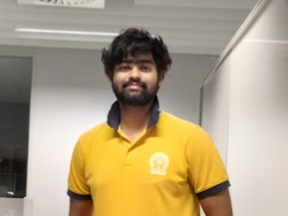
Kunwar Abhishek Singh
Department of Infrastructure Engineering.School of Water Resources Assessment and monitoring of water quality essentials to identify changes and trends in water quality over time and able to respond to emerging water quality problems. Remote sensing techniques are advantageous over conventional methods since the remote sensing approach is cost-effective, time reliable, and provides an invaluable compatible source of data at local to global scales. However, there is a challenge in assessing water quality parameters in dynamic river reaches and in retrieving optically insensitive water quality parameters using remote sensing. This work is focused on using high spatial-temporal satellite data like Sentinel -2, Landsat-8, etc., for assessing the water quality parameters and adopting the existing hydrodynamic models to understand the transport of contaminants in dynamic river reaches to be demonstrated in lower Ganges in India. As a Joint Ph.D. candidate in the MIPA program, I bridge the academic excellence of two esteemed institutions, IIT Kharagpur and the University of Melbourne, proudly representing GRs within the Faculty of Engineering and Information Technology. My research involves mapping water quality in dynamic river reaches using satellite-based remote sensing. I am driven by a profound commitment to environmental sustainability, utilizing cutting-edge technology and international collaboration to impact our world positively.
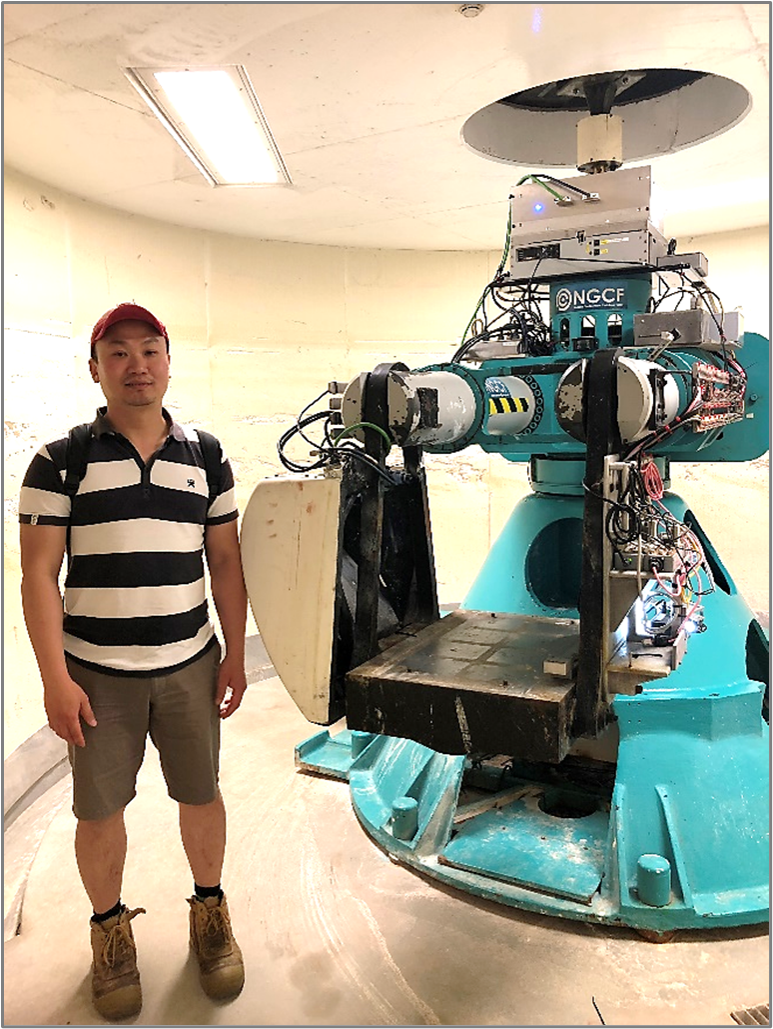
Rene Kurniadi
Rene is a graduate researcher in the Faculty of Engineering and Information Technology at the University of Melbourne, Australia. He received the Australia Government Research Training Program Scholarship in 2021 and Len Stevens Scholarship in 2022. Prior to his doctoral research, he worked as a geotechnical engineer in Melbourne. His research focuses on the cyclic response of horizontal circular plate anchor in dense sand for application in offshore floating renewable energy devices. This research applies centrifuge test and numerical modelling to simulate differentrelative cyclic loading characteristics and drainage condition in offshore environment. The findings from this research are expected to make positive contribution to the advancement of plate anchor.
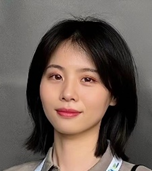
Jing Zhu
Department of Electrical and Electronic Engineering. Jing Zhu is a third-year PhD candidate, and her project is “EV and V2G Management Opportunities in Future Distribution Networks”. Before pursuing her PhD, she worked as a control room operator in the State Grid Corporation of China for three years. She received a B.Eng. degree from The University of Manchester and North China Electric Power University in 2018. The growing adoption of electric vehicles (EVs) presents new technical and economic challenges to our distribution networks, which were originally not designed with extra charging demand. To this end, my research aims to understand and address the challenges posed by EVs, while also leveraging the opportunities presented by vehicle-to-grid technology. The findings will help distribution companies to discover the optimal solutions that make EVs and the grid work together, thus towards a brighter net-zero future.

Zhongze Zhang - Joint PhD
I am a current PhD student. I received my B.A.Sc. in 2020 and M.A.Sc. degrees 2023 from the Department of Electrical and Computer Engineering at the University of Toronto, Canada. Originally, I was from Tsingtao (China), then I spent a decade and more living in Vancouver and Toronto (now). Broadly, my research interests are wireless communications, digital signal processing, machine learning and optimization. My current research lies at the intersection of the aforementioned research topics where I investigate data-driven solutions to challenging problems in wireless technologies. It is worth noting that my interest in communication was initially sparked by the book “Introduction to Analog and Digital Communications” by Simon Haykins.

Igor Kardush
Electrical and Electronic Engineering. Igor Kardush received his B.Eng. degree from the Federal University of Technology of Paraná, Brazil, in 2005, and a post-degree in telecommunications and network engineering from the National Institute of Telecommunications, Brazil, in 2009. He has 13 years of experience in the ICT industry. He is pursuing a Ph.D. degree at the University of Melbourne, with an interest in human-to-machine communication technologies for Industry 5.0. His research addresses the challenges in enabling Industry 5.0 as the upcoming industrial revolution where humans and machines will collaborate. The study comprises three key components: a techno-economic analysis identifying promising optical network architectures, improving reliability through network orchestration with the aid of artificial intelligence algorithms, and implementing haptic feedback predictions to further reduce latency in the network. This work paves the way for Industry 5.0's vision of seamless collaboration between humans and machines on the factory floor.

Kriti Pradhan - Joint PhD
Kriti is a Joint PhD student with the University of Melbourne and KU Leuven. She completed her Bachelor’s in Architecture (B. Arch.) and Masters of Science (M.Sc.) in Urban Planning from Tribhuvan University, Nepal. Her current research interests include Sustainable Cities, Urban sprawl, Urban morphology, urban policies. Urban sprawl is a major challenge to sustainability and yet remains the prevalent form of urban growth in cities around the world. Urban sprawl management strategies have been ineffective due to a siloed approach that does not contemplate the multidimensional complexity of its morphology. This research aims to formulate an integrated framework for urban sprawl management using a morphological approach and scale hierarchy. The outcomes will assist urban planners and policymakers in making informed decisions for urban sprawl management which would support in achieving Sustainable Development Goal (SDG11).

Duneesha Fernando
I’m Duneesha Fernando, a PhD candidate in the Cloud Computing and Distributed Systems (CLOUDS) laboratory. Originally from Sri Lanka, I joined the University of Melbourne after completing my bachelor’s studies at the University of Colombo School of Computing and gaining a few years of industry experience. Since my undergraduate days, I developed an interest in conducting systems research. In my PhD research, I’m working in the area of Artificial Intelligence for IT Operations (AIOPS). My proposed thesis title is anomaly-aware management of microservices-based IoT applications in edge computing environments. It is important to manage latency-critical IoT applications such as smart traffic applications in an anomaly-aware manner, to ensure their smooth functioning amidst performance anomalies occurring as a result of internal system issues as well as malicious attacks. During my PhD candidature, I aim to develop an anomaly-aware management framework for microservices, which is capable of continuously monitoring the edge computing environment, detecting performance anomalies, and taking reactive or proactive measures to mitigate the anomalies in an autonomous manner.

Naomi Bury
Naomi has been studying and working at the University of Melbourne since 2014, gaining her Bachelor of Science (Chemical Systems) and Masters of Engineering (Biochemical). Naomi began teaching chemical engineering in 2019, inspiring a PhD in engineering education which began in 2020. Naomi’s research focuses on the role of sustainable development in chemical engineering education. Her research explores the role of discipline-specific knowledge to allow chemical engineers to solve complex sustainable development challenges. This research uses a Mixed Methods approach, combining focus groups with in-depth surveys. The PhD will have 3 outputs: a model of the relationship between chemical engineering and sustainability, a framework of chemical engineering- sustainable development knowledge, and a map of sustainable development’s presence in chemical engineering curricula.

Jian Li
Jian is an IT professional with Master's degrees in IT from the Queensland University of Technology and IS from the University of Melbourne. His career includes roles as a Unix/Linux Administrator at IBM China, a Robot System Engineer at SoftBank Robotics, and a Data Security Engineer at IBM Australia Presently, Jian is dedicated to the research of strategy and cybersecurity management. Delving deep into the text of classic warfare strategy, he extracts invaluable insights to empower leaders in the realm of cybersecurity management. His aim is to fortify top-level teams with enhanced strategic acumen to response to the ever-evolving and increasingly sophisticated cyber threat landscape.

Geoffrey Hill
Geoffrey is a game developer and academic. Most interested in the development of virtual reality games and in the research of communities of co-creation. He currently works at SAE Institute, in a number of roles including Senior Lecturer in Games Development, Games Programme Chair, and currently Academic Manager. His research is focused on the practices of private video game servers, that is pirate video game servers that are developed and hosted by communities either in competition with or in place of offline official game servers. The research seeks to understand the contributions to software preservation, co-creation, and education of massively multiplayer online (MMO) services. This research is supervised by Martin Gibbs and Melissa Rogerson
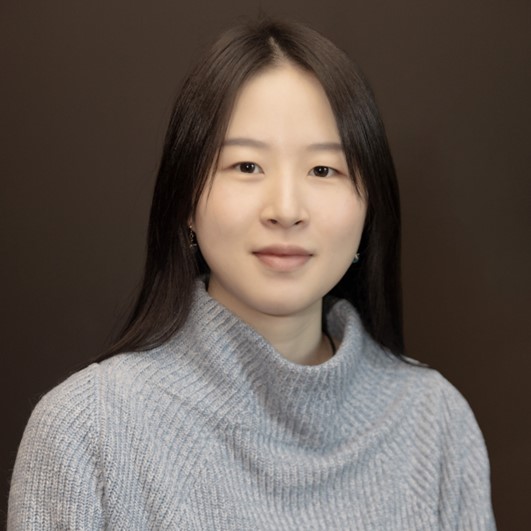
Stella Peng
Stella is a PhD candidate in the School of Computing and Information Systems at the University of Melbourne, where she also received her master’s degree in 2020. Her research interests include IT/IS, sustainability, innovation, and supply chain management. Stella has several publications in well-known international information systems conferences. Under the supervision of Associate Professor Sherah Kurnia, Professor Daniel Samson, and Dr. Tingru Cui, Stella is exploring IT-enabled sustainable innovation through case studies. Specifically, Stella is curious about (a) how organizations can set their mindset (organizational strategic orientation) in a way that promotes IT-enabled sustainable innovation, and (b) how organizations can fully utilize information technologies (IT) to facilitate the development of sustainable innovations.
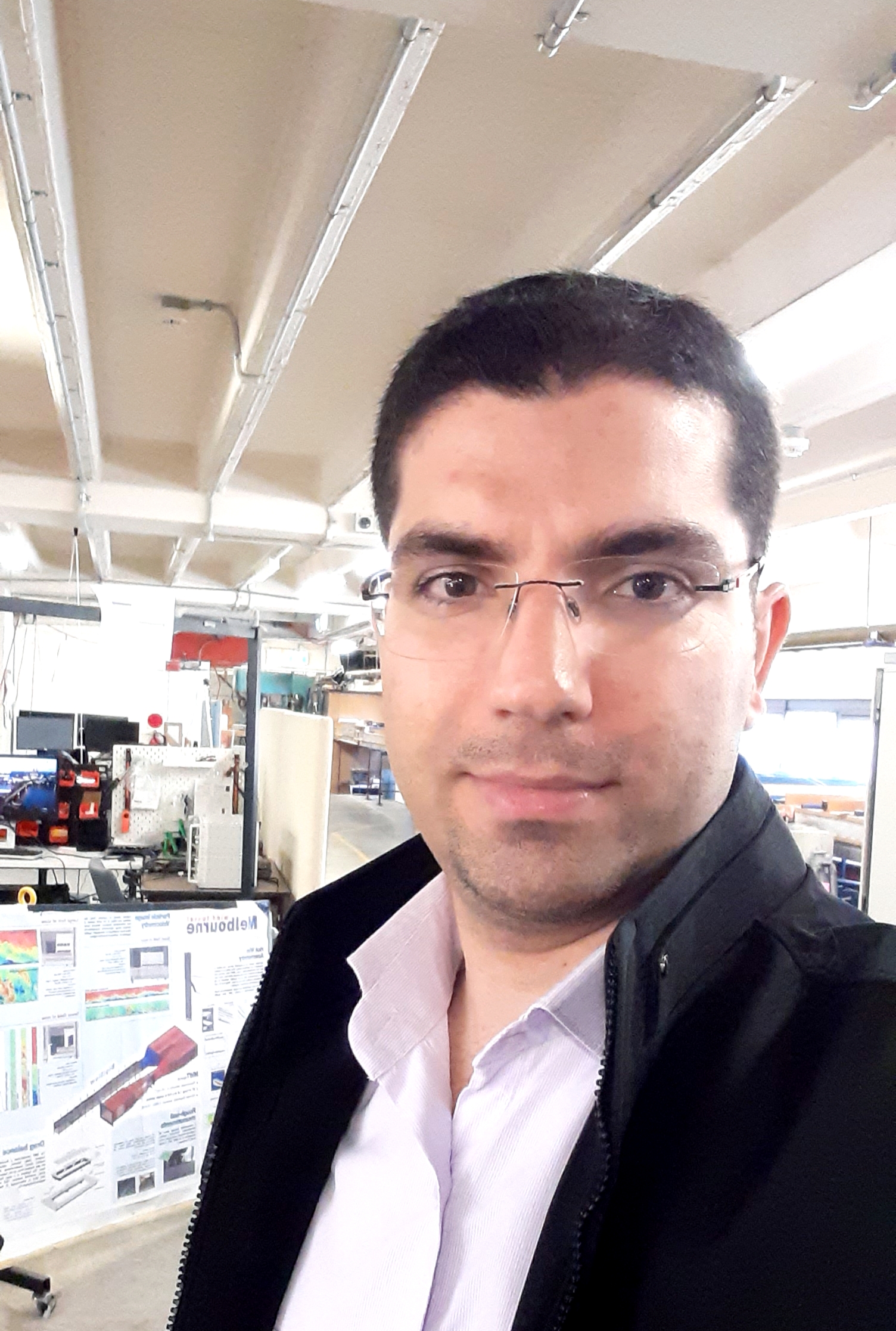
Ahmad Zarei
I am a PhD researcher in the mechanical department, and my research interests are fluid mechanics and heat transfer. Turbulent flow is nature's most common flow regime and has different real-life applications. I am investigating the adverse pressure gradient boundary layer in high Reynolds number, which is one of the most applicable, and of course, unanswered topics.
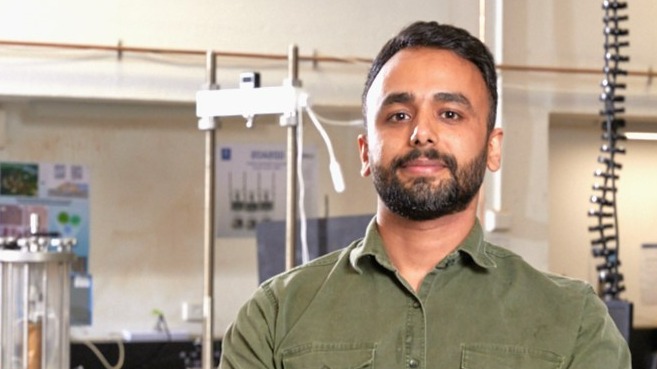
Abbas Rezamand
Abbas Rezamand is a PhD. candidate in geotechnical engineering in the Department of Infrastructure Engineering at the University of Melbourne. He received his master's degree in geotechnical engineering from the University of Tehran, Iran, in 2017. Prior to commencing his PhD., he had around 7 years of industrial experience. His research interests include transportation geotechnics, deep excavations, deep foundations, and numerical modelling. His PhD project, titled “Multi-Scale Investigation into Mechanical Behavior of Waste Tyre Permeable Pavement”, aims to enhance the understanding of the mechanical performance of waste tyre permeable pavements through a combination of field experiments, laboratory tests, and numerical modelling.

Jia Xu
I graduated from the University of Melbourne in July 2020 with a Master’s degree in Information Systems. In my spare time, I love playing with my lovely cat and making cakes. My research interests lie in digital transformation, business analytics, data management, and Data Operations (DataOps). Specifically, I’m interested in how organizations can get value from data analytics and transform their business digitally by using data and analytics. My PhD research focuses on DataOps-enabled digital transformation. I’m exploring how organizations employ DataOps, as a disciplined data management method, to manage its data and drive the digital transformation.

Qi Gao
Qi completed her BEng in Applied Chemistry from Dalian University of Technology and her MEng in Chemical Engineering from University of Melbourne. Her current research focuses on developing an integrated CO2 capture and electrolysis system.